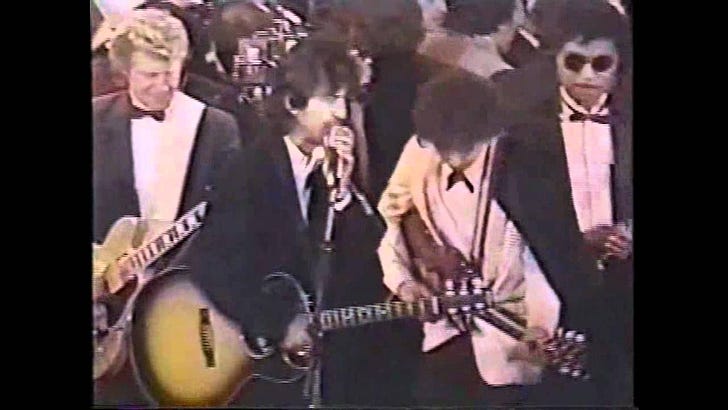Beatles, Beach Boys Headline Hall of Blame
Weird Vibes at the third R&R Hall of Fame Induction, 1988
Before the Rock & Roll Hall of Fame was a museum in Cleveland, it existed as an idea. Annual induction galas began at New York's Waldorf-Astoria in 1986. You ask now, why weren't the Beatles in the first or second year? There was already a line, and for a short time, the Rock Hall parsed out inductions prudently.
The foundational artists were inducted in 1986: Elvis Presley, James Brown, Chuck Berry, Jerry Lee Lewis, Everly Brothers, Little Richard, many others. At that inaugural event, Chuck Berry was sitting alone, so I approached him and asked: "Mr. Berry, when you were writing all those great songs, did you ever imagine all this?" He looked at me with that Chuck Berry squint and said, "I have no imagination." I scurried away.
The next year, 1987, enshrined Muddy Waters, Big Joe Turner, Smokey Robinson, Jackie Wilson, Roy Orbison, Bo Diddley, the Coasters, Aretha Franklin, Marvin Gaye, and others. Ahmet Ertegun, Atlantic Records co-founder and, with Jann Wenner and Jon Landau, the es…
Keep reading with a 7-day free trial
Subscribe to Critical Conditions by Wayne Robins to keep reading this post and get 7 days of free access to the full post archives.



